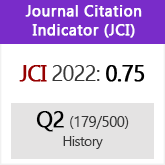Paradojas de la historia, paradojas de la historiografía. Las peripecias del fascismo español
DOI:
https://doi.org/10.3989/hispania.2001.v61.i207.309Keywords:
Right-wing ideology, Fascistization, Fascism, Francoism, NationalismAbstract
The author argues here the importance of avoiding the paradigm of backwardness in analyzing the evolution and vicissitudes of Spanish fascism. Like in other European countries, the fin-de-siècle cultural crisis saw the emergence of a new nationalist political culture, which would deeply influence Spanish fascism in the future. After the failure of the fascist movement during the Second Republic, explicable fundamentally in political terms, there followed its conversion into a mass party during the Civil War and its immediate subordination to the State, to which it nonetheless represented a fundamental support. Franco’s regime, as a fascistic —not fascist— dictatorship, may be seen as a peculiar synthesis of the two great currents of the European anti-liberal nationalism in the 20th century, i.e. the reactionary nationalist current, which was ideologically preeminent, and the fascist movement.
Downloads
Download data is not yet available.
Downloads
Published
2001-04-30
How to Cite
Saz, I. (2001). Paradojas de la historia, paradojas de la historiografía. Las peripecias del fascismo español. Hispania, 61(207), 143–176. https://doi.org/10.3989/hispania.2001.v61.i207.309
Issue
Section
Monographies
License
Copyright (c) 2001 Consejo Superior de Investigaciones Científicas (CSIC)

This work is licensed under a Creative Commons Attribution 4.0 International License.
© CSIC. Manuscripts published in both the printed and online versions of this Journal are the property of Consejo Superior de Investigaciones Científicas, and quoting this source is a requirement for any partial or full reproduction.All contents of this electronic edition, except where otherwise noted, are distributed under a “Creative Commons Attribution 4.0 International” (CC BY 4.0) License. You may read here the basic information and the legal text of the license. The indication of the CC BY 4.0 License must be expressly stated in this way when necessary.
Self-archiving in repositories, personal webpages or similar, of any version other than the published by the Editor, is not allowed.














